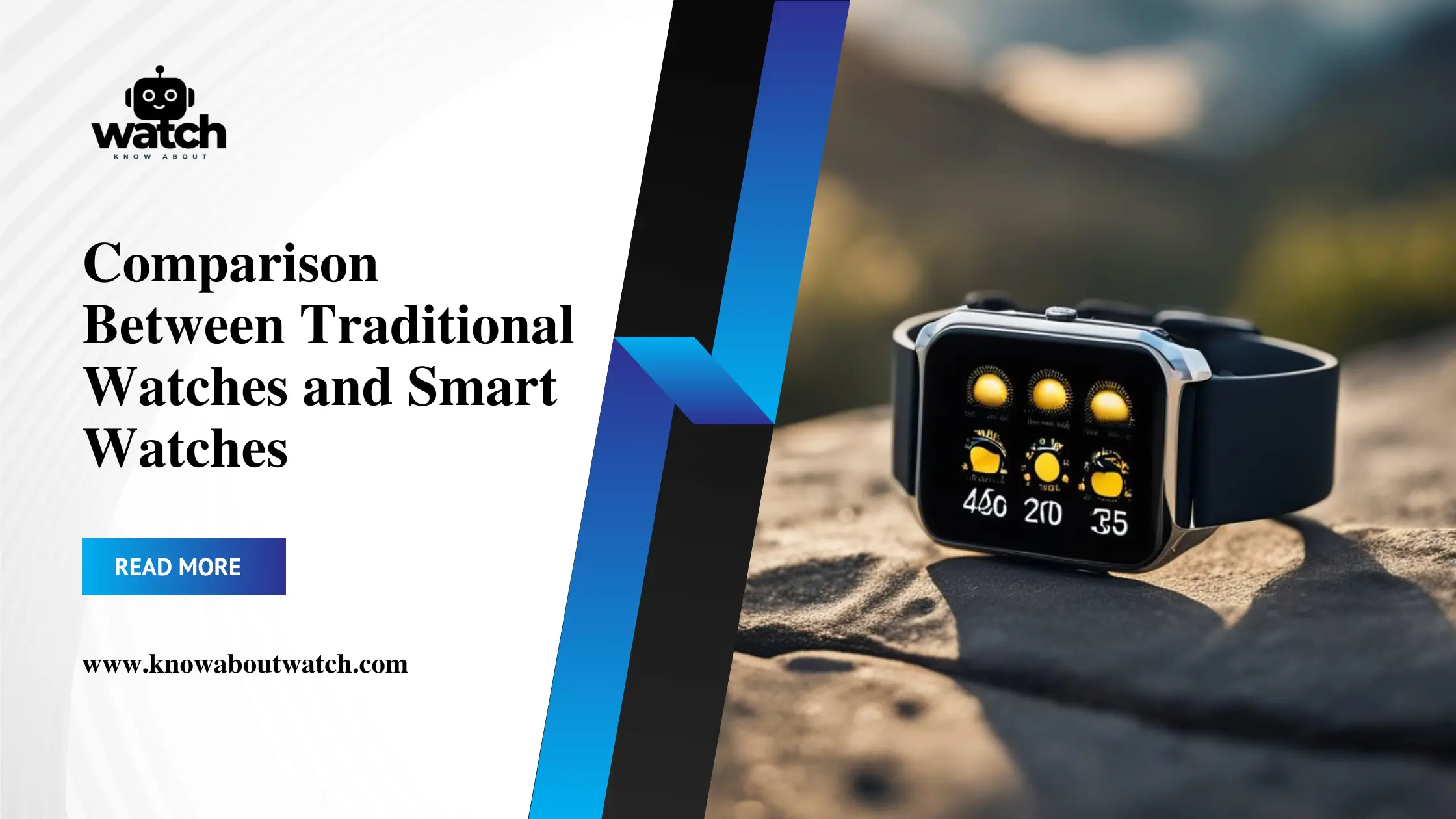In a world where time is of the essence, the choice between traditional watches and smartwatches has become a defining decision for many. Each type of timepiece offers unique features, design elements, and functionalities that cater to different lifestyles and preferences. Let’s delve into the intricate details of traditional watches and smartwatches to help you navigate the world of horology with confidence and style.
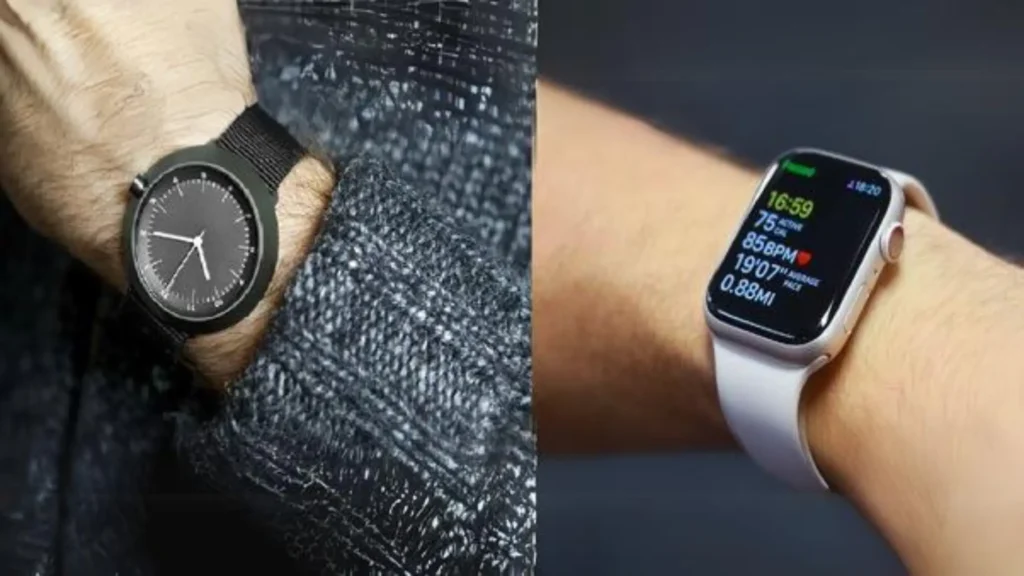
Timekeeping Mastery
Traditional Watches:
Traditional watches are renowned for their mechanical precision and timeless elegance. Powered by either automatic or quartz movements, these watches embody the artistry of horology. Automatic movements, also known as self-winding, harness the kinetic energy from the wearer’s movements to keep the watch running smoothly. On the other hand, quartz movements rely on a battery for precise timekeeping, offering unparalleled accuracy.
The enduring battery life of traditional watches is a hallmark feature that sets them apart from their smart counterparts. With battery lives spanning years, traditional watches exude reliability and self-reliance. The craftsmanship and attention to detail in traditional watchmaking result in designs that transcend trends and stand the test of time.
Smartwatches:
In contrast, smartwatches are a fusion of technology and timekeeping. These digital companions rely on smartphone connectivity to synchronize time accurately. While they offer convenience with digital displays and customizable watch faces, their dependence on technology introduces challenges such as connectivity issues that may affect time accuracy.
Smartwatches cater to those who value functionality beyond basic timekeeping. With features like fitness tracking, notifications, GPS navigation, music control, and contactless payments, smartwatches seamlessly integrate into modern lifestyles. Despite their reliance on technology for timekeeping, smartwatches offer a plethora of features that enhance daily life in ways traditional watches cannot.
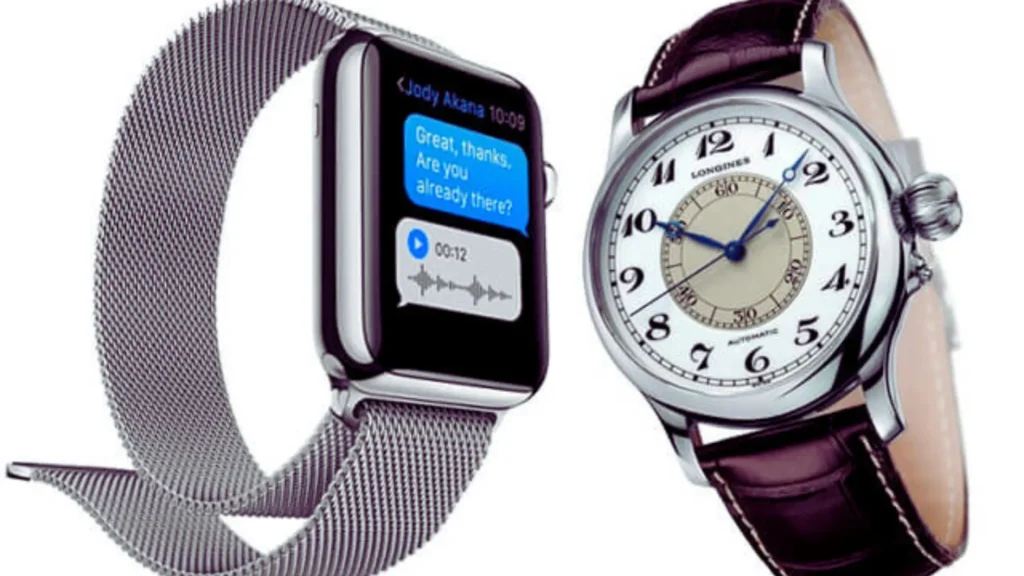
Feature Face-Off
Traditional Watches:
Traditional watches excel in simplicity and elegance. Beyond telling time, they often feature additional complications such as date displays, chronographs for timing events, and moon phase indicators for celestial enthusiasts. These classic features add depth to the timepiece without overwhelming its primary function.
The limited additional functionalities of traditional watches contribute to their charm as dedicated timepieces. While they may lack the versatility of smartwatches in terms of features, traditional watches focus on perfecting the art of timekeeping with precision and grace.
Smartwatches:
Smartwatches redefine the concept of a wristwatch by offering a myriad of features beyond basic timekeeping. From tracking your fitness goals to receiving real-time notifications from your smartphone, smartwatches act as personal assistants on your wrist. The integration of GPS for navigation, music control for entertainment on-the-go, and contactless payment options for convenience make smartwatches indispensable in today’s fast-paced world.
The vast array of features packed into smartwatches transforms them into multifunctional devices that cater to various aspects of daily life. Whether you’re a fitness enthusiast tracking your workouts or a professional managing notifications seamlessly, smartwatches offer a level of connectivity and convenience that traditional watches cannot match.
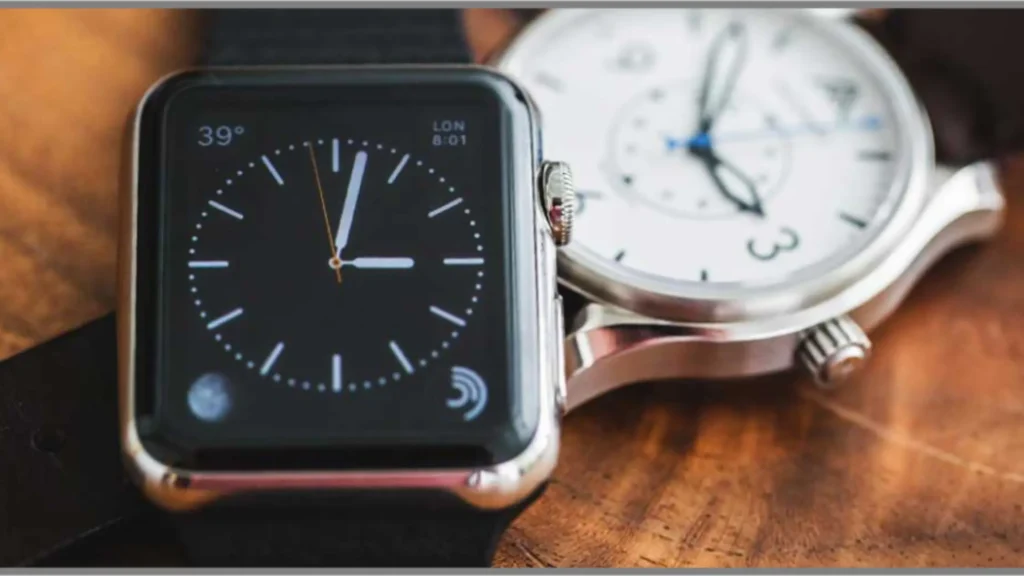
Style Showdown
Traditional Watches:
The allure of traditional watches lies in their classic designs crafted from premium materials like leather straps, stainless steel cases, and even precious metals like gold or platinum. These materials not only enhance the aesthetic appeal but also contribute to the durability and longevity of traditional watches.
Traditional watches serve as more than just timepieces; they are symbols of status, heritage, and personal style. The intricate details in their design reflect centuries-old traditions of watchmaking excellence that have stood the test of time.
Smartwatches:
Smartwatches embrace a modern aesthetic driven by technology. With sleek designs and customizable options for watch faces and straps, smartwatches cater to those who seek versatility in their accessories. The focus on customization allows users to express their individuality through their choice of digital interfaces and bands.
While smartwatches may lack the luxurious materials found in traditional watches, they make up for it with their adaptability to changing trends and technological advancements. The modern consumer who values innovation and functionality will find smartwatches to be a reflection of their dynamic lifestyle.
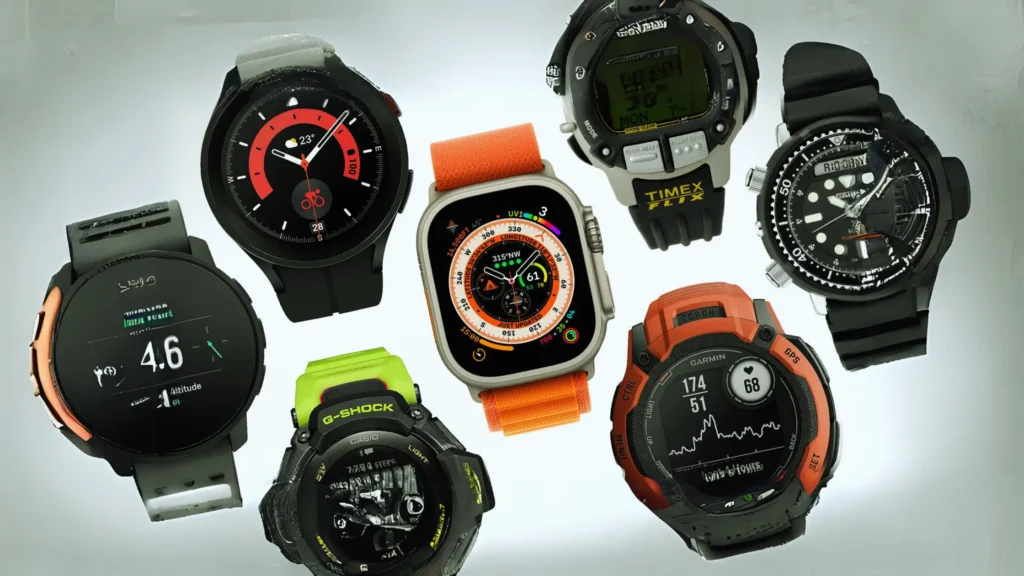
Target Audience Analysis
Traditional Watches:
Traditional watches appeal to individuals who appreciate classic design elements, durability, and a sense of tradition in their timepieces. Whether it’s for everyday wear or special occasions, traditional watches exude sophistication and elegance that resonate with those seeking timeless pieces.
The target audience for traditional watches includes collectors looking for investment pieces that appreciate in value over time. For individuals who value craftsmanship over technology and prefer low-maintenance accessories that stand the test of time, traditional watches remain an enduring choice.
Smartwatches:
On the other hand, smartwatches cater to tech-savvy individuals who seek advanced features beyond basic timekeeping functions. Fitness enthusiasts benefit from the health tracking capabilities while busy professionals rely on notifications for seamless connectivity throughout their day.
The target audience for smartwatches includes those who prioritize functionality and connectivity in their accessories. Whether it’s staying updated on emails during meetings or tracking your steps during workouts, smartwatches offer a level of integration with daily activities that resonates with individuals leading fast-paced lifestyles.

Cost Considerations
Traditional Watches:
Traditional watches span a wide range of price points depending on factors such as brand reputation, materials used, craftsmanship involved, and additional complications present in the watch. From affordable options suitable for everyday wear to luxury brands commanding premium prices for exquisite designs, traditional watches offer something for every budget.
One notable aspect of traditional watches is their potential to appreciate in value over time. High-end brands with limited editions or historical significance often become sought-after collector’s items that fetch significant prices at auctions or among enthusiasts looking to invest in horological masterpieces.
Smartwatches:
In comparison, smartwatches generally come at lower price points than high-end traditional watches due to mass production methods and technological advancements driving down costs. While some luxury smartwatch brands exist at higher price ranges offering premium materials or exclusive features, the rapid pace of technological innovation can lead to obsolescence within a few years as newer models with enhanced capabilities enter the market regularly.

Decision-Making Guide
As you navigate the world of traditional watches and smartwatches, it’s essential to consider several factors before making your decision. Here are some key points to help you choose the timepiece that best suits your lifestyle and preferences:
- Design and Style: Traditional watches exude elegance and sophistication with their classic designs and premium materials, making them ideal for formal occasions or as statement pieces. Smartwatches, on the other hand, offer modern aesthetics and customization options that cater to those who value versatility and tech-forward accessories.
- Functionality: Consider the features that matter most to you. If you prioritize fitness tracking, notifications, and connectivity with your smartphone, a smartwatch may be the ideal choice. However, if you prefer a dedicated timepiece with additional complications like chronographs or moon phases, a traditional watch might better suit your needs.
- Durability and Longevity: Traditional watches are known for their durability and longevity, often lasting for generations with proper care. Smartwatches, while technologically advanced, may have a shorter lifespan due to rapid advancements in technology and design.
- Personal Preference: Ultimately, your choice between a traditional watch and a smartwatch should align with your personal style, values, and daily activities. Whether you prioritize craftsmanship, innovation, or a blend of both, selecting a timepiece that resonates with you is key.
Conclusion
In summary, comparing traditional watches with smartwatches reveals a captivating contrast between timeless elegance and modern functionality. Traditional watches showcase enduring craftsmanship and design, while smartwatches offer advanced features for our digital lifestyles. Whether you prefer the classic appeal of tradition or the technological allure of smart devices, each watch type has unique strengths. Understanding these differences helps you choose a timepiece that aligns with your style, values, and practicality. Your watch isn’t just for telling time; it’s a personal statement reflecting your identity and journey through life’s adventures.
People Also Asked
Which is better, smart watch or classic watch?
Smartwatches excel in functionality with features like notifications and health tracking, while classic watches offer timeless style and craftsmanship. The choice depends on personal preference: if you value technology and connectivity, go for a smartwatch; if you prefer elegance and tradition, a classic watch is better.
Is a smart watch better than a formal watch?
Smartwatches provide versatility with apps and fitness tracking, making them suitable for casual and active lifestyles. Formal watches, however, emphasize sophistication and style for professional settings. Ultimately, the better option depends on your lifestyle and the occasions you attend.
What is the difference between a smartwatch and a regular watch?
Smartwatches integrate technology, offering features like notifications, fitness tracking, and customizable interfaces. Regular watches focus on timekeeping and aesthetics, often showcasing craftsmanship and design. The choice hinges on whether you prioritize functionality or traditional elegance.
Which is better, a smart watch or an analog?
Smartwatches offer advanced features like health monitoring and connectivity, while analog watches provide classic style and simplicity. If you seek functionality and tech integration, a smartwatch is better; for timeless elegance and durability, choose an analog watch.
Is it OK to wear a smart watch all the time?
Wearing a smartwatch continuously is generally acceptable, as they are designed for daily use. However, consider comfort, battery life, and potential skin irritation. Regular breaks can help maintain comfort and prolong the device’s lifespan.

